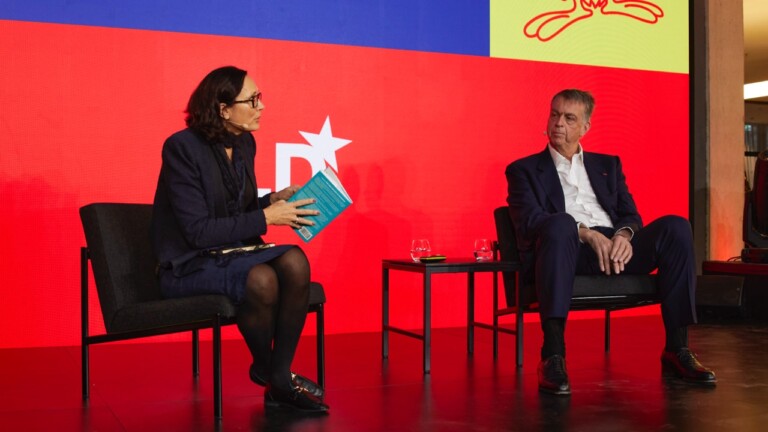Food waste is a massive global problem – but there are ways to solve it as you’ll hear in this DLD Future Hub panel discussion with Anastasia Hofmann (KITRO), Hans-Peter Hermann (MHP Holding Group) and Bernhard Kowatsch, head of the Innovation Accelerator of the United Nations World Food Programme.
“One third of food being produced is thrown away before it’s being consumed”, moderator Florian Hoffmann points out, adding that this creates enormous economic damage, too, while some 300 million people around the world go hungry.
Anastasia Hofmann explains how KITRO’s AI-powered platform helps the hospitality industry track and reduce food waste. “We measure it, we analyze it in order to help chefs and F&B managers to understand where the inefficiencies are, what menus come back most, what is being overproduced”, she explains.
Based on that data, “they can then optimize their work processes and reduce food waste.” KITRO’s system can help customers “save up to 60 percent of their edible food waste and save between two to eight percent of their annual food costs”, Hofmann says.
One of KITRO’s customers is the MHP hotels group. The system was initially met with skepticism, Hans-Peter Hermann admits, but has become a cornerstone in the company’s sustainability efforts, saving 67 tons of food waste and over 60,000 meals in four hotels alone.
In future projects, “the system will be implemented from day one”, Hermann says. “We don’t wait until the hotel is up and running. We implement it from day one – because we have the data and we can use it to start taking action.”
Bernhard Kowatsch highlights how food waste disproportionately affects developing countries. In the Global South, “30 to 40 percent of the food is lost before it ever enters the food system” due to poor storage, rodents, and logistics, he notes.
Kowatsch shares innovative solutions, from low-tech airtight storage bags in Ethiopia to AI-powered supply chain tools that saved $2 million during a six-month pilot.
“There’s enough food on the planet for everybody to have to live a healthy life, right now”, Kowatsch emphasizes. Reducing food waste, he adds, is “one of the best levers we can pull” to combat hunger and climate change.






